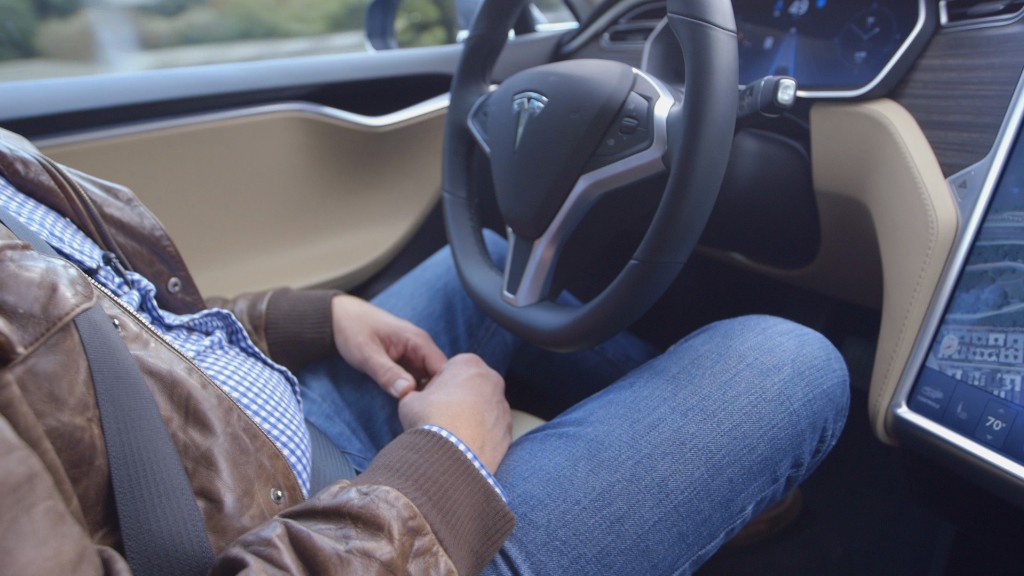
Consumer Reports magazine says Tesla should "disable automatic steering" until it changes the software to require drivers to keep their hands on the wheel.
This comes after two recent crashes, including a gruesome Florida incident in which the driver was killed, involving Autopilot, the automaker's the semi-autonomous driving system.
"'Autopilot' can't actually drive the car, yet it allows consumers to have their hands off the steering wheel for minutes at a time," Laura MacCleery, vice president of consumer policy for Consumer Reports, said in a Consumer Reports blog post. "Tesla should disable automatic steering in its cars until it updates the program to verify that the driver's hands are on the wheel."
Automatic steering is one part of the Autopilot program. Other parts can control brakes and the accelerator.
The Tesla owner's manual does say that the driver should keep his hands on the steering wheel, but the system will still work without the driver touching the steering wheel at all for long periods.
In the blog post, Consumer Reports also criticized Tesla (TSLA) for naming the system "Autopilot." The magazine said that the name, and Tesla's own marketing messages, imply the system has more competency and control than it does.
Related: Driver in Tesla Autopilot accident would buy another Tesla
"Tesla's own press release for the system announced 'Your Autopilot has arrived,' and promised to relieve drivers 'of the most tedious and potentially dangerous aspects of road travel," the blog post said. "But the release also states that the driver 'is still responsible for, and ultimately in control of, the car.'"
Tesla response to Consumer Reports that the Autopilot name is not misleading.
"Tesla Autopilot functions like the systems that airplane pilots use when conditions are clear," a spokeswoman said in an email. "The driver is still responsible for, and ultimately in control of, the car. This is enforced with onboard monitoring and alerts."
Other auto brands, including Lincoln (F),Volvo, Infiniti (NSANY) and Mercedes-Benz (DDAIF) have steering technology similar to that included in Tesla's Autopilot, but those manufacturers require drivers to keep their hands on the steering wheel almost all the time. If the driver takes his hands off the wheel for more than a few seconds, the system will stop working.

Tesla said it is continually introducing fully tested improvements to make the Autopilot system safer than driving without it. These improvements are usually rolled out as "over-the-air" software updates that happen automatically.
"While we appreciate well-meaning advice from any individual or group, we make our decisions on the basis of real-world data, not speculation by media," Tesla said in a writen statement.
The magazine's criticisms don't touch on the car itself, only on the semi-autonomous driving software. Consumer Reports has, in the past, lauded the Tesla Model S as the best car it has ever tested.
In its blog post Consumer Reports also called on regulators to take more control of these sorts of automated safety features.
"NHTSA should insist on expert, independent third-party testing and certification for these features, and issue mandatory safety standards to ensure that they operate safely," the magazine said.

